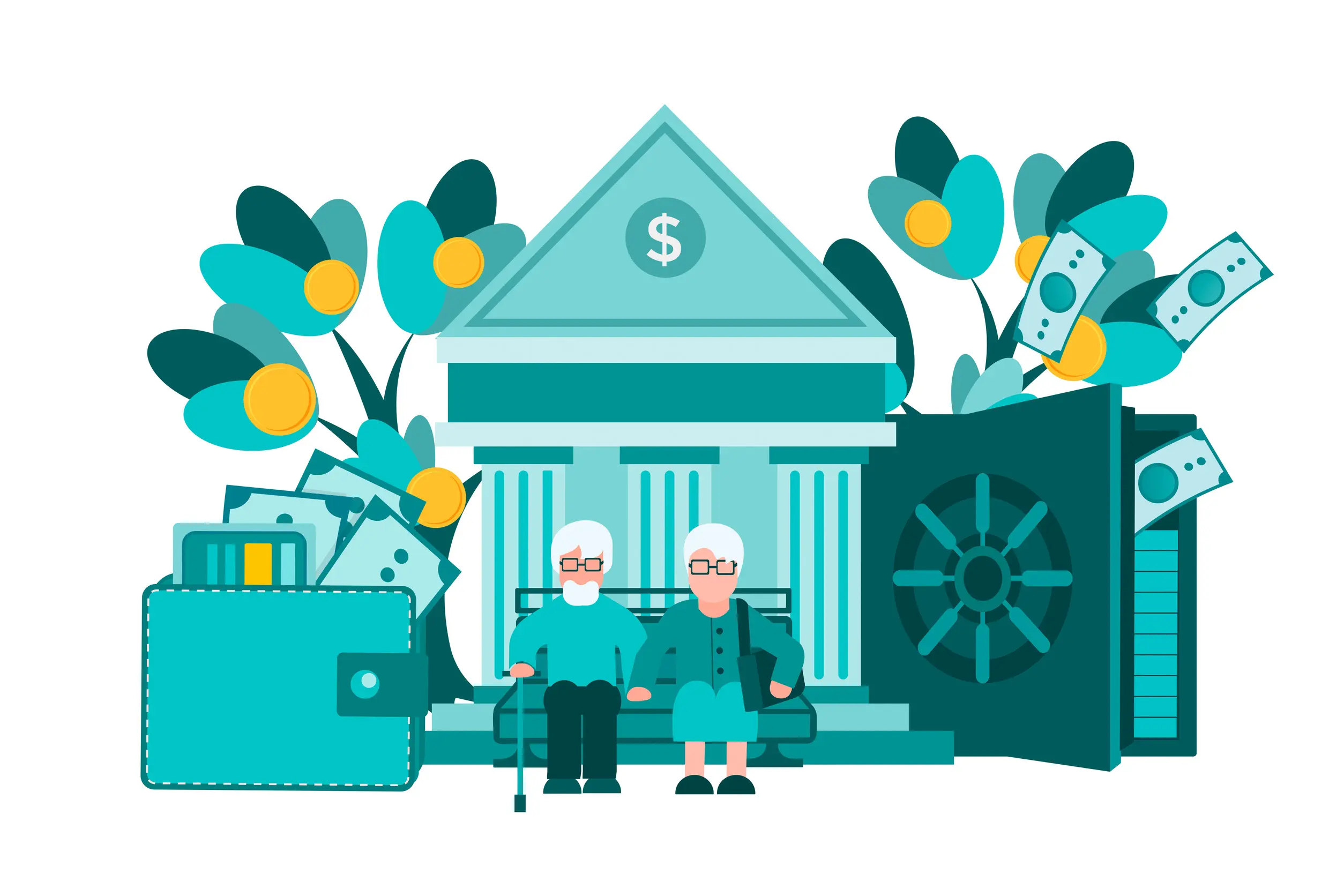Christina Chandra
2nd December 2025 - 10 min read

(Article updated on 2 December 2025)
Getting rejected for a loan or credit card hurts. You thought your finances looked fine. But the bank said no. You’re not alone. Banks reject way more applications than they admit. One in four housing loan applications gets turned down. Most problems can be fixed once you know what went wrong.
Understanding why banks said no helps you fix the actual problem. Don’t just hope a different bank will approve you. Here’s what really kills applications and how to sort it out before trying again.
Your Profile Doesn’t Match Bank Requirements
Banks check every application against specific rules. These rules help them decide if you can pay back the money. In Malaysia, you must be at least 21 years old to get your own credit card. Personal loan applicants need to be between 21 and 60 years old. Some banks go up to retirement age.
Income requirements change a lot between banks. Basic credit cards need RM24,000 per year. That’s about RM2,000 per month. Personal loans are between RM1,600 and RM3,500 monthly. Most banks prefer RM3,000. Fancy credit cards can need RM60,000 to RM100,000 or more per year.
How long you’ve worked matters. Banks trust people who’ve stayed in their jobs. One bank might reject you for earning RM2,800 monthly. Another bank might approve you because you’ve worked five years. Banks look at different things. They want different types of customers.
Work for Grab or do freelance work? Banks might ask more questions. Show them solid proof of your income. Some modern banks now accept payment records from Grab, Shopee, or PayPal. Ask about this when you call them.
Messy Documents Kill Applications
Mistakes kill more applications than you’d think. Wrong details, missing forms, blurry photos, or unclear copies give banks easy reasons to say no. Banks won’t continue if your paperwork looks sloppy.
Regular employees need MyKad (front and back), last three months of payslips, bank statements showing salary, EPF statements for 13 months, and latest income tax papers with receipts. Some banks only need one payslip if you work for big companies or the government.
Self-employed people need more documents. Banks want MyKad, Business Registration papers, last six months of bank statements, and latest tax returns with receipts. Some banks want audited accounts too.
Clear photos prevent delays and rejections. Blurry pictures, cut-off documents, and dark copies are the most common mistakes people make. Use a scanner, not your phone. Make sure the lighting is good. Check every corner shows up clearly.
Your Income Can’t Handle What You’re Asking For
Banks reject applications when your income can’t support the credit you want. Credit cards tell you upfront how much income they need. Loans depend on what you can afford to pay back.
Different banks really do approve different things. Public Bank might say no. Hong Leong Bank might say yes. Banks work differently. Try more than one.
Never lie about your income. Adding allowances or bonuses to your basic salary sounds smart. But banks check your real payslips. Numbers don’t match? Instant rejection.
You Owe Too Much Already
Banks work out how much of your salary goes to paying debts. Add up all monthly debt payments. That’s personal loans, credit cards, car payments, and housing loans. Divide by your monthly salary after tax. Multiply by 100. That’s your Debt Service Ratio percentage.
Most Malaysian banks approve up to 60%. They prefer 40% or lower. Earn RM6,000 monthly with RM2,000 in debt payments? Your 33% looks healthy. Push debt to RM3,600? Your 60% makes banks nervous.
Banks also worry when you take on too much debt too fast. Lots of new loans in a short time raises red flags. Unless you can prove why you needed the money.
You Have No Credit History
No credit history creates a problem. You need credit to build credit history. But banks want credit history before giving credit. First-time applicants face exactly this catch.
Banks can only look at your basic details for first applications. They’re taking a chance on you. Building credit history early helps avoid this problem.
Start with basic credit cards. They need lower income. They’re made for people building credit records. After six to twelve months of paying on time, you can get better cards.
Secured credit cards work too. You put down a deposit with the bank. Then use the card normally. Banks feel safer because your deposit covers problems. Pay reliably and you can move to regular cards later.
Apply at banks where you already have accounts. Savings accounts or fixed deposits work in your favour. Even without credit history.
Your Credit Score Shows Problems

Banks check your creditworthiness through CCRIS. That’s your Central Credit Reference Information System record. Bank Negara Malaysia manages it. Your CCRIS shows all your loans, how you’ve paid them back, and recent credit applications. Late payments and missed payments all show up.
Paying on time consistently creates the record banks trust. Check your CCRIS free through eCCRIS online or at AKPK kiosks. Look at it before applying. Then you know exactly what banks will see.
CTOS and Experian Malaysia track more information CCRIS might miss. Legal notices, trade references, and bill payments. Each bank weighs this information differently. Get reports from all of them for the complete picture.
Higher credit scores mean better approval chances. Lower scores don’t automatically mean rejection. Banks look at your job and income too. Paying on time improves your score. It’s the best way to strengthen future applications.
Applying to lots of banks at once creates more problems. Each application shows up on your CCRIS as a credit enquiry. Too many enquiries close together signal trouble. Banks wonder why you need credit so desperately.
Apply for one or two cards maximum. More than that and banks doubt you. Apply for one card. Wait for the answer. Only try again after several months if needed.
What To Do After Rejection
Getting rejected hurts, but don’t rush to apply elsewhere immediately. That makes things worse. First, figure out which problem is yours.
Quick Self-Assessment: What Killed Your Application?
Just started your first job less than 6 months ago? It’s probably employment stability. Banks want to see you’ve stayed put for at least 6-12 months.
Applied for a premium reward or travel card? It’s probably income requirements. Your salary might not match what they need for that tier.
Already have a car loan, PTPTN, or other credit cards? It’s probably your DSR. Calculate it using the formula mentioned above. Above 60%? That’s a problem that you have to fix.
This is your very first credit application ever? It’s probably because you have no credit history. You need to build a track record first.
Have you missed payments or paid late before? It’s probably your credit score. Check your CCRIS immediately.
Applied to multiple banks in the last few months? It’s probably due to too many credit enquiries. Banks see you as desperate.
Now that you know what went wrong, here’s what to do:
1. Find Out Why (If They’ll Tell You)
Call the bank within a week of rejection. Ask specifically why they said no. Most banks won’t give detailed explanations because of internal policies. But they might offer general feedback like “insufficient income” or “high existing debt.” Even vague reasons confirm what you suspected.
2. Pull Your Own Credit Reports
Check your CCRIS through eCCRIS online before doing anything else. Look at your CTOS and Experian reports too. See exactly what banks saw when they rejected you.
Look for mistakes. Wrong addresses listed? Late payments you already cleared? Accounts that aren’t yours? Dispute errors immediately. Each credit bureau has its own dispute process.
Count your recent credit enquiries. More than three in the last six months? You need to let that cool down.
3. Review What Went Wrong

If it’s employment stability (less than 6 months at current job):
- Wait until you exceed the 6-month mark, ideally after probation
- Keep paying all your bills on time during this waiting period
- Consider asking your family to add you as a supplementary cardholder for now
- Reapply at month 7 or 8 with an updated employment letter showing longer tenure
If it’s income requirements (applied for cards above your salary range):
- Stop applying for premium cards immediately
- Look for basic cards with RM24,000-RM36,000 annual income requirements
- Try banks where you already have savings accounts, fixed deposits or salary accounts
- If still rejected, get a secured card first
If it’s high DSR (above 60%):
- Calculate exactly where you stand using the formula
- Pay down your smallest loan first to reduce monthly commitments
- Wait 3-4 months, then reapply with updated bank statements showing lower debt
- Consider asking for a smaller loan amount or a lower credit limit
If it’s a no-credit history (first-time applicant):
- Get a secured credit card
- Place a fixed deposit of RM3,000-RM5,000 with any major bank
- Use the secured card for 6-12 months, pay on time every month
- After this period, apply for the regular card you originally wanted
- Alternative: Ask family to add you as a supplementary cardholder while building your own history
If it’s credit score problems (late payments showing on CCRIS):
- Get all your accounts current immediately if any are still overdue
- Pay everything on time for the next 6-12 months without fail
- Your score will improve gradually with consistent good behaviour
- Consider credit counselling through AKPK if you’re struggling with payments
- Wait at least 6 months before reapplying
If it’s too many credit enquiries:
- Stop all applications
- Wait at least 3 months (preferably 6 months) before trying again
- Those enquiries will matter less as they age
- Use this time to improve other aspects (save money, pay down debt)
4. If You Need Credit Urgently
Banks want to see patience and planning. But if you genuinely need a card now for Grab payments, online shopping, or emergencies:
Immediate options that won’t hurt you:
- Ask parents or siblings to add you as a supplementary cardholder
- Use debit cards with Visa/Mastercard logos for online transactions
- Consider e-wallets like Touch ‘n Go, GrabPay, or ShopeePay, or prepaid cards for daily spending
Don’t do this:
- Apply to five different banks, hoping one will say yes
- Lie about your income or employment
- Use illegal or unregulated lenders
- Borrow from loan sharks
5. When You’re Ready to Reapply
Give it at least three to six months before reapplying. Use this time to fix whatever caused the rejection. Don’t just wait passively. Take action on the specific problem.
Before you apply, use our DSR Calculator to check if you’re actually eligible. Key in your income and monthly commitments. Know your debt ratio before banks do. If you’re above 60%, you’ll know exactly how much debt to clear first.
Ready to apply with confidence? Our loan recommendation tool matches you with banks that actually approve profiles like yours. Answer a few questions about your income, employment, and existing debts. We’ll show you which banks are most likely to say yes based on your specific situation. Stop guessing. Stop getting rejected. Apply where you’ll actually get approved.
When you finally reapply:
- Choose banks where you already have relationships (savings accounts, fixed deposits, salary accounts)
- Apply for something more basic than what got rejected initially
- Show evidence you’ve addressed the previous problems
- Attach updated documents: bank statements showing lower debt, employment letter showing longer tenure, CCRIS showing improved payment history
- Save your rejection letter and acknowledge that you’ve improved since then
By taking a methodical approach instead of desperately reapplying everywhere, you dramatically improve your chances next time. Rejection isn’t permanent. It’s “not right now.” Good luck!
Join our WhatsApp Channel for money tips that make sense.









Comments (0)